The practice of history is a professional skill. It requires training and experience in critically assessing the evidence and events of the past and placing them in context.
Professional historians are quite different from history enthusiasts who enjoy subjects like family history.
Such people are often very good at collecting and sorting information, but may not have the professional skills and background knowledge to analyse and interpret this source material. The difference is similar to that between a qualified medical practitioner and someone having a knowledge of first aid.
To become a professional historian you need qualifications
The basic qualification for a professional historian is an Honours degree or equivalent in the discipline of history from an appropriate tertiary institution. To become a member of a Professional Historians Association the qualification must be recognised under the National Standard for the Accreditation of Professional Historians in Australia.
Training
The study of history at school is beneficial, but is not a prerequisite for tertiary study in history. At tertiary level, undergraduate students can study various fields of history (such as Australian, Asian or European history). That study is usually oriented toward either research or practical skills. When the emphasis is on research, a specific topic is usually investigated and presented as an Honours dissertation. Postgraduate research (a Masters or Doctorate degree) extends the historian's skills in research, analysis and writing through the preparation of a thesis on a selected topic.
When the emphasis is on the development of practical skills, a postgraduate qualification in public or applied history will refine the historian's skills for use in specific professional fields such as museums, heritage, radio, film and television and digital history.
For teaching history in secondary schools, an education qualification (such as a Diploma in Education) is required. Contact your state or territory History Teacher Association for further information.
Finding employment
Professional historians may work as employees in organisations (for example, government departments), as contractors or as consultants. The first is a more secure existence, however, options for permanent employment have lessened in recent years due to economic constraints.
Opportunities for short, medium and long-term contracts and consultancies also arise in government bodies, museums, archives, in heritage practice and elsewhere. Such positions are usually widely advertised. State and territory Professional Historians Associations (PHAs) also publicise employment opportunities for their members.
Joining your relevant PHA after graduation from your tertiary history course will give you access to advice, information, a professional support network and, most importantly, accreditation for your qualifications.

